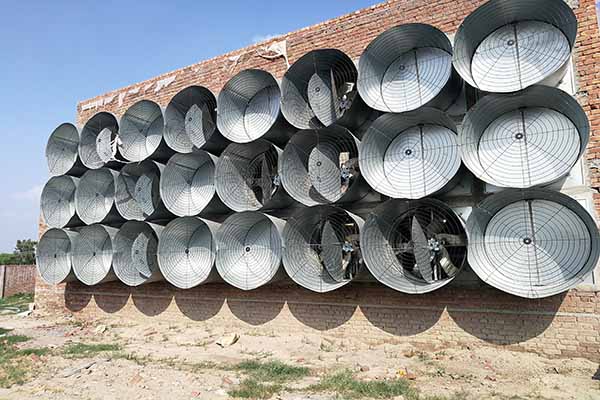Tanzania Chicken Farm Automation Equipment Import Policy: A Comprehensive Guide
Time : 2025-06-30
Introduction
The poultry industry in Tanzania has been experiencing significant growth, with chicken farming emerging as a vital sector for the country’s economy. To meet the increasing demand for poultry products, automation has become a crucial component in modern chicken farms. This article aims to provide a comprehensive guide on the import policy for automation equipment in Tanzania, focusing on key aspects such as regulations, procedures, and the importance of using specialized poultry equipment.
Understanding Tanzania’s Chicken Farming Industry
With a growing population and an increasing demand for protein-rich foods, the chicken farming industry in Tanzania has seen a surge in recent years. This growth has been further accelerated by the government’s initiatives to promote agricultural development and ensure food security. As a result, modernization and automation have become integral to the sector’s success.

Automation not only improves efficiency but also ensures better animal welfare, leading to higher quality poultry products. To facilitate this transformation, importing high-quality automation equipment is essential.
The Role of Automation Equipment in Chicken Farms
Automation equipment plays a critical role in chicken farming by streamlining operations, reducing labor costs, and enhancing productivity. Some of the key equipment includes:
- Feeders: Automated feeders ensure a consistent and controlled supply of feed to the chickens, promoting healthier growth and reducing waste.
- Waterers: Automated water systems provide clean and fresh water to the birds, which is crucial for their health and well-being.
- Environmental Control Systems: These systems manage temperature, humidity, and air quality, creating optimal conditions for the chickens.
- Insemination Equipment: Automated insemination machines improve fertility rates and reduce the need for manual labor.
- Processing Equipment: Automation in processing facilities ensures hygienic and efficient handling of poultry products.
Tanzania’s Import Policy for Automation Equipment
The importation of automation equipment in Tanzania is governed by strict regulations to ensure the safety and quality of poultry products. Here are the key aspects of the import policy:
1. Licensing and Certification
Importers must obtain the necessary licenses and certifications from the Tanzania Food and Drug Authority (TFDA) and the Tanzania Bureau of Standards (TBS). These include import permits, quality certificates, and compliance with international standards.
2. Health and Safety Standards
The imported equipment must comply with Tanzania’s health and safety regulations to prevent the spread of diseases and ensure the quality of poultry products. This includes adherence to international standards such as the Food and Agriculture Organization (FAO) guidelines.
3. Tariffs and Duties
Importers are required to pay customs duties and taxes on the automation equipment. The rates vary depending on the type of equipment and its value. It is advisable to consult with a customs broker to navigate the taxation process effectively.

4. Quality Control and Inspection
The TFDA and TBS conduct inspections to ensure that the imported equipment meets the required standards. Failure to meet these standards may result in the rejection of the shipment or the imposition of penalties.
Importing Automation Equipment: A Step-by-Step Guide
Following these steps can help importers navigate the process of importing automation equipment to Tanzania:
- Research and Select Suppliers: Identify reputable suppliers who specialize in poultry automation equipment.
- Request Quotes and Specifications: Obtain detailed quotes and specifications for the equipment, including warranty information.
- Secure Necessary Permits: Apply for import permits, quality certificates, and other required documents.
- Arrange Shipping: Coordinate with a shipping company to ensure the safe transport of the equipment.
- Inspection and Customs Clearance: Conduct inspections and facilitate customs clearance upon arrival in Tanzania.
- Installation and Training: Arrange for installation of the equipment and provide training to the farm staff.
The Benefits of Using Specialized Poultry Equipment
Investing in specialized poultry automation equipment offers several benefits, including:
- Improved Productivity: Automation reduces the need for manual labor, allowing farmers to focus on other critical aspects of their operations.
- Enhanced Animal Welfare: Specialized equipment ensures a more comfortable and stress-free environment for the chickens, leading to better health and productivity.
- Quality Assurance: Automation helps maintain consistent quality standards throughout the poultry production process.
- Cost Reduction: In the long run, automation can lead to significant cost savings by reducing labor expenses and minimizing waste.
Conclusion
As the chicken farming industry in Tanzania continues to grow, automation has become a vital component for sustainable and efficient poultry production. Understanding the import policy for automation equipment is crucial for farmers and investors looking to modernize their operations. By adhering to the regulations and selecting high-quality equipm ent, poultry farmers can enhance their productivity, ensure animal welfare, and contribute to the overall growth of the industry.
ent, poultry farmers can enhance their productivity, ensure animal welfare, and contribute to the overall growth of the industry.











